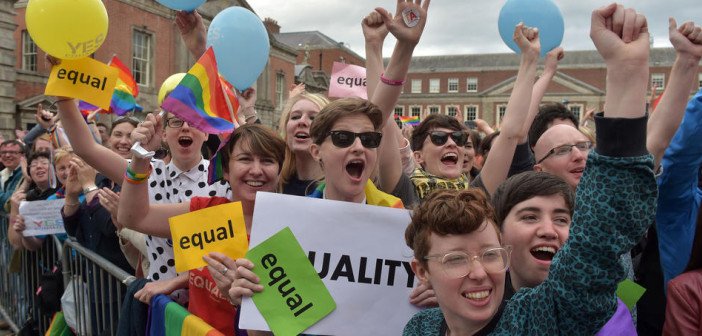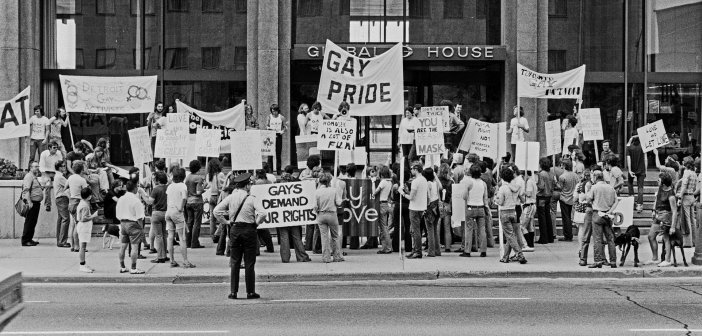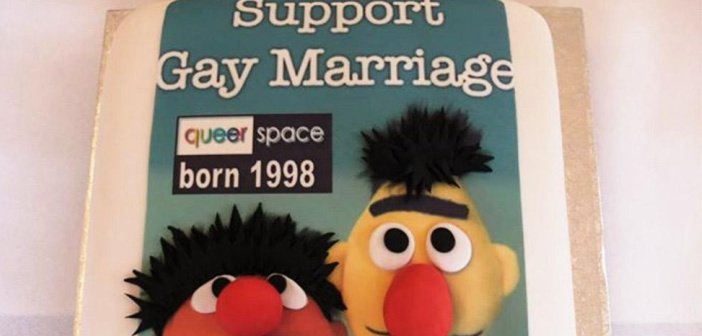Why Do We Come Out?
When it comes to LGBT+ rights, Ireland has come a long way in the past couple of years. Marriage equality and gender recognition are now both realities, and considering Ireland’s dire record of LGBT+ support in the past, these are brilliant steps forward. In general, the LGBT+ community is visible more than ever before through TV shows, music and the media.
I came out earlier this year. I had been thinking about it for almost a year beforehand. The build up to that moment was filled with anxiety, what if’s, and worst case scenarios. I think anybody who considers coming out runs through all of those possibilities, the ripple of repercussions that could affect their life. Luckily for me it went pretty well, but that isn’t always the case for everybody.
The concept of “coming out” or “coming out of the closet” has been widely used by the LGBT+ community but it only really became popular in the 1960s, with very little recorded history of the term being used before then. Its origins come from the term debutante in which a young girl formally steps out into society for the first time; in America this was mirrored at large drag balls where LGBT+ people came out to join their peers within the community. There were also metaphors or signals used by gay men to signal to others their sexual orientation, without having to “out” themselves to wider society, assuming that their sexuality was something to be kept a secret or a “skeleton in the closet.”
But have we moved to a point in society where our sexual orientation isn’t something to be “outed” or to “come out” about?

I’m a firm believer that you do what’s comfortable for you, you should never feel pressured into doing anything that you don’t want to. If you don’t want to come out that’s absolutely fine. If you do, that’s awesome too! I know before I came out if I were to turn up at a family function, a work night out, or a social gathering of some kind with a new girlfriend, heads would turn – and it wouldn’t be out of shock that I had actually found a person willing to put up with me. I knew the first remarks I’d hear wouldn’t be usual small talk like “Where are they from? and “Are they working? What do they do for a living?” It would actually look more like “Oh Katie… I didn’t know you were… y’know… that way.”
I think we have to look back at how LGBT+ people were treated in the past to have an understanding of why the concept of coming out exists.
In 1993 the Criminal Fraud (Sexual Offences) Bill was passed which decriminalised homosexuality in Ireland. This followed Senator David Norris’s case against the state which was successfully brought to the European courts in 1988, in addition to years of campaigning by the LGBT+ community.

Outright discrimination, like that from the state, encourages the idea that there’s something wrong with being anything other than straight. It creates this sense of “otherness” around LGBT+ people. This, in turn with a lack of information and fear of the unknown leads to homophobic discrimination and targeted acts of violence against members of the LGBT+ community. One example of this is the attack, and subsequent death, of Declan Flynn in the early 1980s. It makes Irish society an unsafe place for LGBT+ people to exist, to be able to live their lives honestly and openly for fear of discrimination in work, school, or within their local communities. Essentially, it means having to keep who they are quiet or a secret.
Since then, times have changed for the better. After the general election of 2011 three gay TDs were elected to the Dail, followed by Ireland’s first openly gay minister in 2015. 2015 was a milestone year for LGBT+ rights with the success of the marriage equality referendum which passed by popular vote, as well as the Gender Recognition Bill. Even leading up to the referendum there was so much more LGBT+ representation in the Irish media, and as a person figuring out how to or even whether to come out, this was encouraging. Since then, many more people have embraced who they are, especially in the case of young people, with BelongTo noting a rise in demand for their support services. The rise in acceptance for the LGBT+ community and international representation through popular media shows a society that is more open than ever before to recognising and embracing its LGBT+ citizens.
The culture that once dictated that it was something wrong, broken or illegal for you to exist as an LGBT+ person, isn’t as prominent as it used to be. But cases such as the recent Asher’s Bakery cake row, in which a bakery was found guilty of discrimination when they refused to bake a cake supporting gay marriage on religious grounds, and an alleged homophobic attack in Phoenix park over the summer, shows that it hasn’t completely disappeared.

We have made huge steps in the right direction, which may lead people to think that everything’s fine, that there’s nothing left to worry about, but really there are so many more issues that need to be addressed. Restrictions that still exist on blood donations from gay men, to the absence of hate crime laws to protect social minorities including LGBT+people, to the voices of younger members of the transgender community not being heard as under 16s are not currently covered under the Gender Recognition Act. To a certain extent that “otherness” still exists. Irish society has to try to wrap its head around the needs of our diverse community. Ireland is a much more welcoming place for the LGBT+ community than it used to be. People are much more open minded now than they were 20, even 10 years ago. But despite this, we still live in a heteronormative society where unless you explicitly say otherwise you are assumed to be straight and cisgender.
But society is also at a turning point where different generations are trying to understand that we’re more different than they can comprehend. We are learning to meet those differences with respect rather than fear; whether it’s the LGBT+ community, immigrants or religious beliefs. Because of this I think the process that is coming out, isn’t something that’s going to become a figment of the past just yet.
